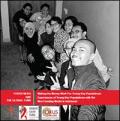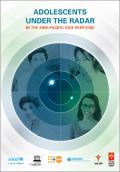Publications on Young Key Populations

Resource | Publications,
2016 is the first year of Youth LEAD to implement its Strategic Planning (2016-2018) and the first year of the Sustainable Development Goal. As expected the shifting funding landscape on HIV was felt distinctly and it has brought both challenges and opportunities to Youth LEAD. Reflecting back, Youth LEAD’s efforts accomplishments and challenges.

Resource | Publications,
Positive changes are taking place around the Asia and the Pacific region, due to strong leadership and enhanced community education, advocacy, and access to treatment. In fact, leadership has not just come from the quarters of government or intergovernmental groups, but also civil society, including young people.
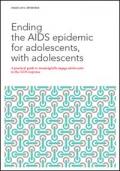
Resource | Publications,
The purpose of this document is to provide guidance to programme designers, implementers, policy and decision makers on how to meaningfully engage adolescents in the AIDS response and broader health programming, and to demonstrate why adolescents and youth are critical in efforts to end the AIDS epidemic by 2030.
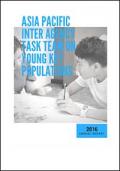
Resource | Publications,
The Asia Pacific Inter Agency Task Team on Young Key Populations was established in 2009 to promote coordinated support from UN agencies and civil society partners to meet the HIV prevention, treatment, care and support needs of YKPs including: young men who have sex with men, young transgender people, young people who inject drugs, young people living with HIV, and young people selling sex.
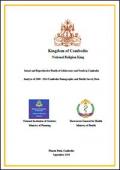
Resource | Publications,
The aim of this report was to describe the current state of the sexual and reproductive health of adolescents and youth in Cambodia and this was achieved through the analysis of data on young women aged 15-24 years from the four Cambodian Demographic and Health Surveys (CDHS) conducted in 2000, 2005, 2010 and 2014.

Resource | Publications,
In 2015, Youth LEAD as a advocacy- oriented youth-led regional network facilitated a series of capacity building activities in several counties. Take the New Gen training as an example; in 2015, the trainings continued to rollout in Cambodia, Mongolia, and the Philippines with hundreds of young key populations from grassroots movements being invited to learn and partake in these sessions.

Resource | Publications,
Youth LEAD‘s report, "Our Rights Matter Too: Sexual and Reproductive Health and Rights of Young Key Populations in Asia and the Pacific", provides an overview of the sexual and reproductive health and rights (SRHR) needs, issues, and priorities of young key populations (YKP) in Asia and the Pacific. The report addresses the gaps in knowledge on the SRHR needs of #YKP in the region, offers recommendations based on a regional study, and contributes essential information for policy and advocacy efforts.






